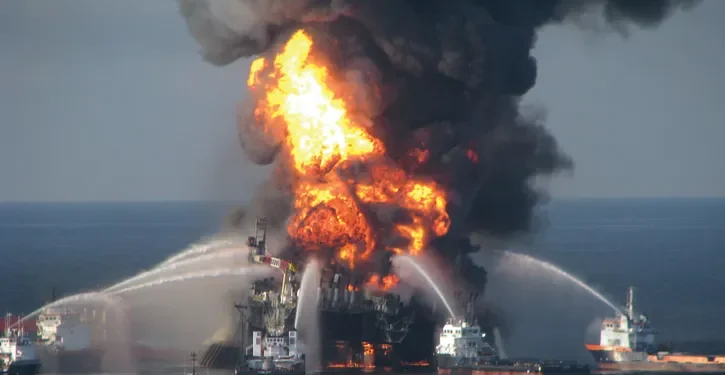In April 2010, the Deepwater Horizon oil rig, operated by BP in the Gulf of Mexico, became the site of one of the most devastating environmental disasters in history. What began as a routine drilling operation turned into a catastrophe that not only claimed lives but also inflicted long-lasting damage to marine ecosystems and coastal communities.
The Deepwater Horizon rig was located approximately 41 miles off the coast of Louisiana, drilling in waters nearly a mile deep. On April 20th, a sudden and catastrophic explosion rocked the rig, resulting in the loss of eleven lives and injuring many others. The explosion triggered a fire that burned for two days before the rig ultimately sank, leaving the Macondo well-gushing oil unchecked into the Gulf of Mexico.
In the months that followed, efforts to contain the oil spill proved to be an immense challenge. BP and other companies involved in the operation struggled to cap the well, while millions of barrels of oil continued to pour into the ocean. The spill not only contaminated vast stretches of coastline but also had severe consequences for marine life, including fish, birds, and marine mammals.
The Deepwater Horizon disaster highlighted the risks associated with offshore drilling and the complexities involved in responding to such emergencies. It also brought into question the adequacy of safety regulations and oversight in the oil and gas industry. Investigations into the causes of the disaster revealed a combination of factors, including equipment failures, inadequate safety measures, and a lack of preparedness for such a catastrophic event.
The environmental impact of the Deepwater Horizon spill was profound and far-reaching. The oil slick spread across thousands of square miles of ocean, coating beaches, marshes, and estuaries with thick, sticky crude oil. The toxic chemicals released into the water hahaveevastating effects on marine ecosystems, causing widespread damage to coral reefs, seagrass beds, and other sensitive habitats.
The economic toll of the disaster was also significant, particularly for the Gulf Coast region, which relies heavily on tourism, fishing, and other industries that depend on a healthy marine environment. Thousands of businesses were affected, and countless livelihoods were disrupted as a result of the spill.
In the years since the Deepwater Horizon disaster, efforts have been made to improve safety standards and regulations in the offshore drilling industry. However, the legacy of the spill continues to linger, reminding us of the importance of environmental stewardship and the need to prioritize the protection of our oceans and coastal communities.
newshub



Recent Comments